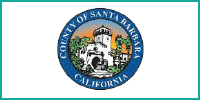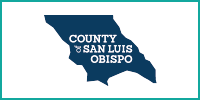Traditional customer service, professional demeanor and appropriate business attire may be unfamiliar concepts to teens entering the workplace. Whether working in a fast food restaurant, a store at the mall or in a business office, you need to remember that you’re being paid to perform a service and interact effectively and politely with customers. You represent your company to those with whom you come in contact, and it’s important to present a professional image.
Basic Manners
Teens in the workplace should use the basic manners they were taught as kids—these still apply and are an important part of customer service and effective workplace communication. Say please and thank you, look people in the eye when talking to them, don’t interrupt when others are speaking and offer a firm handshake. If you’re in a customer service job, offer customers assistance, be polite and calm when dealing with them and help try and resolve problems when they arise. Show up on time, do what’s expected of you and make the effort to be part of the team.
Appearance
Teens often have to adjust to a dress code or wear a uniform at work. Even though there is no strict dress requirement, wear clothing that is clean, neat and appropriate for the type of job you have. Avoid t-shirts, shorts and sleeveless tops, don’t wear torn clothing and leave the flip-flops at home. Keep your hair neat, clean and out of your face; in food service jobs, you may also be required to tie your hair back or wear a hairnet. Basic jewelry is usually okay, as long as it does not present a safety hazard, but visible body piercings, except for earrings, are typically not acceptable in most professional environments.
Electronics
Don’t go to work “plugged in.” Listening to music is probably part of your daily routine, but using headphones or ear buds at work is not acceptable in most work environments. You can’t hear customers’ requests for assistance or meal orders when you’re plugged in—you may be distracted from what you’re supposed to be doing and it’s considered disrespectful and impolite to not give others your full attention when they’re talking to you. Save the music for breaks or when you’re away from work. The same goes for cell phones—do not make or accept calls while at work, with the possible exception of when you’re on a break and away from coworkers and customers. Keep your phone turned off during work hours.
Demeanor and Attitude
One of the biggest challenges is to shift to a more professional demeanor and speaking style than most teens are used to. In particular, focus on using proper forms of address and avoid slang or street talk. Attitude is important, too. Don’t slouch, act interested and engaged when talking to people at work and avoid physical contact—not everyone is comfortable with hugs or high fives, and these are not appropriate in most workplaces.
Sample Interview Questions
1. Why are you looking for a job?
2. Why are you interested in working for our company?
3. How has school prepared you for working for our company?
4. Why should we hire you?
5. What do you think it takes to be successful in this position?
6. How would you describe your ability to work as a team member?
More Sample Interview Questions and Possible Answers:
1. Question: Why do you feel you are the best candidate for this job?
Answer: Because I’m responsible, reliable, and a hard worker.
2. Question: Do you have any experience in this type of work?
Answer: If you have related experience, tell them about it.
But if you don’t have experience, then answer: Not exactly, but I am a fast learner and I’m excited to learn as much as I can about (blank).
3. Question: Tell me about a strength of yours.
Answer: I’m a good listener and I like to be around people.
4. Question: Tell me about a weakness of yours.
Answer: I’ve been called a perfectionist, but I like to do things right.
5. Question: Are you available on weekends?
Answer: Yes I am. And if ever I’m not, I’ll be sure to let you know well in advance.
6. Question: Tell me about how you would handle a difficult customer.
Answer: I would politely listen to their complaint without interrupting them, and then try to help them solve the problem.
7. How would you handle working with someone you don’t particularly like?
Answer: I get along easily with people—I don’t think that would be a problem.
8. What position do you think would fit you best?
Answer: I would like to learn as many positions and jobs as I can. I’m really flexible.
9. Do you have your own transportation?
Answer: Yes. (if you do) or I don’t have my own car, but I know how to use public transportation.
10. Why should I hire you?
Answer: Because I have a positive attitude and I’ll work hard every day.
More Sample Interview Questions and some Tips:
1. Tell me something about you? (the most common first question asked in any interview)
Answer: Start by telling your name and where you work at present or which was your last job. If you are a student, then tell the employer where you are studying currently.
2. Tell me something about your greatest achievement so far.
Answer: You must prepare for this question well. Here you have to talk about the greatest challenge that you have encountered so far in in your life and strategy that you usually prepare to deal with it. Do not exaggerate the matters, say in short yet adding the important points. It would be better if you could present some proof for your achievement, although as the interviewer is an experienced person so he/she will understand the relevance of your statements. Remember that the way you present yourself here will portray your strengths indirectly.
3. How do you deal with stress in your work life?
Answer: If asked, then you can mention the reason behind the stress and try to figure out the solution to it. Further, you can add something like this, “If I see there are people who are adding to my stress level, then I believe in discussing with them and focusing on the professional as well as personal issues that lead to such stressful situation. I also believe that humans may have psychological issues which affect their work. So, when I talk about performance, I focus on the human side also apart from just being a professional. Overall, I would focus on the working environment as it greatly contributes to the performance of individuals.”
4. Why do you want to join our organization?
Answer: The answer to this question will include various parameters on the basis of which you intend to be a part of the organization. You can talk about your interest in the job profile that the company has to offer you (give reasons for the same) and the position of the organization in the industry that it operates in. Also, speak about the growth of the organization and your willingness to be a part of that growth. You can talk about the work and corporate culture of the company. Be prepared to give logical reasons for the same; for instance, talk about mission and vision of the company published on the internet and how it interests you.
5. What goals have you set for yourself in the future?
Answer: Always remember that it’s necessary to realize which direction you want to go and the things you need to plan for the same. When you answer questions like these, you must relate your intentions along with the work that is required to be done. You must give a proper explanation as if you are a team leader, including all work you have done recently and how you will use your abilities to achieve the next level.
6. How do you prepare yourself to make a path to reach goals?
Answer: There is no set answer to this question. Hence, when you give an answer, remember to attach a valid reason behind your plan/strategy. Your answers may include “switching companies to get a wider knowledge about the industry,” (one more example). Talk about interest in taking new assignments so as to attain a deeper, wider knowledge. Also, mention being a “team player” and what attributes are required for that.
7. What is your definition of the ideal job?
Answer: If you want the job, then your answer to this question should include the attributes of the job you are interviewing for. This does not mean that you will recite the job description line by line. You can relate your interests with the job profile. Present your answer in a manner that seems genuine and not copied from something else.
8. What are the major challenges that you have encountered so far in your career?
Answer: When asked about the major challenges, you must focus on the hurdles that you have faced in your work life and not the achievements. Be honest when you reply to this question. You can prepare for this by noting difficult/challenging situations and how you dealt with them. Give reasons and proof for every statement you make.
There are various interview questions that may be asked of you; these are some of the more tricky questions that may be asked of you. Other professional questions will be based upon type of work and years of experience.
Just Remember…
An interview gives you the opportunity to showcase your qualifications to an employer, so it pays to be well prepared. The following information provides some helpful hints.
Preparation:
· Learn about the organization
· Have a specific job or jobs in mind
· Review your qualifications for the job
· Prepare answers to broad questions about yourself
· Review your resume.
· Practice an interview with a friend or relative
· Arrive before the scheduled time of your interview
Personal appearance:
· Be well groomed
· Dress appropriately
· Do not chew gum or smoke
The Interview:
· Relax and answer each question concisely
· Respond promptly
· Use good manners
· Learn the name of your interviewer and greet him or her with a firm handshake
· Use proper English—avoid slang
· Be cooperative and enthusiastic
· Use body language to show interest
· Ask questions about the position and the organization, but avoid questions with answers that could easily be found on the company website. Avoid asking questions about salary and benefits unless a job offer is made
· Thank the interviewer when you leave and, as a follow up, in writing
Test (if employer gives one):
· Listen closely to instructions
· Read each question carefully
· Write legibly and clearly
· Budget your time wisely and don’t dwell on one question
Information to bring to an interview:
· Social Security card
· Government-issued identification (driver’s license)
· Resume: although not all employers require applicants to bring a resume, you should be able to furnish the interviewer information about your education, training, and previous employment.
· References: employers typically require three references. Get permission before using anyone as a reference. Make sure that they will give you a good reference. Try to avoid using relatives as references.
· Transcripts: employers may require an official copy of transcripts to verify grades, coursework, dates of attendance, and highest grade completed or degree awarded.




